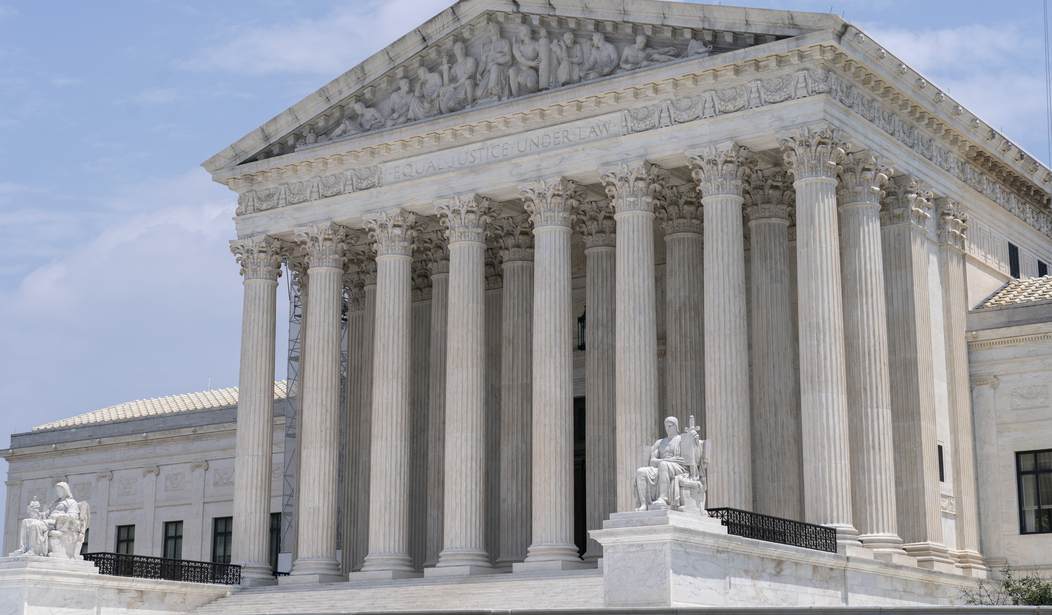How Will the Supreme Court Rule in the Colorado Case? Probably Not the Way You Think

The Supreme Court isn't political, right? Baloney. The high court has always been political. It's only in the last 75 years that we've pretended it's nonpartisan. Until the mid-20th century, justices "moved fluidly between Congress, statehouses and the Supreme Court," according to Joshua Zeitz writing in Political Magazine last year.
Somehow, the Supreme Court was seen as being above politics, that the justices were wise men with only the law and the good of the country to guide them. Partisan politics never entered into decisions.
So much for the fairy tale. The Supreme Court is about the application of the law to political questions. How can it not be political?
The biggest political question since 1974's United States vs. Richard Nixon, where the high court ordered the president to turn over the White House recordings that doomed his presidency, is now before the court.
How the justices rule in the Colorado ballot access case will almost certainly determine who the next president will be.
How will the justices rule? It's complicated.
State courts and officials like Maine's secretary of state have issued rulings on their interpretation of the 14th Amendment and its so-called "insurrection clause." The high court could simply accept those interpretations and let stand the denial of access for Trump to the Colorado and Maine ballots.
That's highly unlikely. Far more likely is Chief Justice John Roberts falling back on consensus and trying to get all the justices to agree on one of several legal theories.
It's made more complicated because despite the actions of Colorado and Maine. several other states like Minnesota, Michigan, and California are allowing Trump's name to appear on the state ballot.
There's also the complicating matter of each state having its own rules for ballot eligibility.
Trump and those allied with his position have put forth a plethora of arguments for why he shouldn’t be disqualified.
First and foremost, Trump argues that his actions on Jan. 6 don’t constitute participating or aiding in an insurrection. In fact, they contend, Jan. 6 wasn’t an insurrection at all because they say it lacked organization and was not violent or prolonged enough to meet the constitutional threshold.
Trump also says he was exercising his free speech rights when he exhorted a Jan. 6 crowd to “fight like hell” to overturn the election. And the Colorado GOP has argued that its First Amendment rights of free association have been violated by striking Trump from the ballot there.
Any of those defenses is valid. It should be noted that Trump has never been convicted in a court of law for any crime, much less "insurrection."
“I expect the court to take advantage of one of the many available routes to avoid holding that Trump is an insurrectionist who therefore can’t be president again,” said Nicholas Stephanopoulos, a law professor at Harvard.
Some of those routes include the court holding that the 14th Amendment doesn't apply to the presidency. The First Amendment argument is perhaps the most compelling and might serve as a consensus argument that could attract one or two of the liberal justices.
The court will probably be attracted to any argument that stops short of calling Trump an "insurrectionist" which will allow him to remain on the ballot. Since there's been no judicial determination about Trump's guilt or innocence, the justices will probably be reluctant to rule on that question themselves.
“This is a fraught political issue,” said Derek Muller, a law professor at the University of Notre Dame. “I think there will be an effort for the court to coalesce around a consensus position for a narrow, unanimous opinion. That probably means coalescing around a position where Trump stays on the ballot.”
Nicholas Stephanopoulos, a law professor at Harvard, also believes that Chief Roberts will try to reach some kind of consensus on a narrower issue.
“I think Roberts very much doesn’t want the court disrupting a presidential election, especially based on a novel legal theory that doesn’t have years of support from conservative judges and academics,” Professor Stephanopoulos said. “I also doubt that the court’s conservative justices want to start a civil war within the Republican Party by disqualifying the candidate whom most Republican voters support.”
No matter what the plain language wording of the law might be, the justices know that this decision is more than just being about the law. This is about history. It's about the republic and our democratic institutions. How can they deny the legitimacy of a candidate who is being barred from office for a crime he's never been convicted of?
Justice Roberts has a huge task in front of him. And the decision he crafts will enrage one-half of the country.
No comments:
Post a Comment